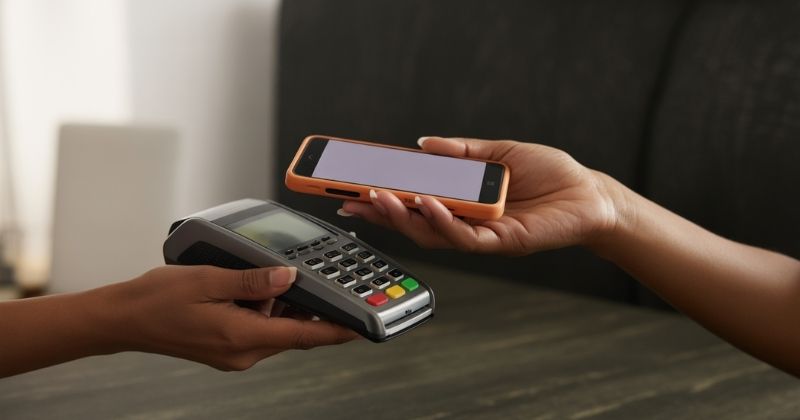
The traditional way South Africans have received and handled cash is undergoing a dramatic transformation. Across the country, an increasing number of people are choosing to make use of instant digital payments rather than relying on physical cash, a shift that is becoming especially evident in smaller towns and rural regions.
Key Takeaways
- Rapid Digital Shift: South Africa’s banking sector is rapidly transitioning toward digital services, leading to the closure of hundreds of traditional branches and ATMs across the country.
- Rising Financial Divide: Experts warn that this digital acceleration could widen the gap between tech-savvy consumers and the 3.9 million unbanked South Africans who lack access to digital tools or the internet.
- Mobile Banking Boom: Major banks such as Standard Bank, Absa, FNB, and Nedbank are investing heavily in app-based online banking, driving South Africa into the top tier of African nations for mobile payment adoption.
About Arcadia Finance
Compare and secure your loan quickly with Arcadia Finance. Access 19 trusted, NCR-registered lenders with zero application fees and a process designed for your convenience.
Banks Close Branches as South Africa Embraces Digital Banking Revolution
At the same time, the country’s banking sector is accelerating its move toward digitalisation, resulting in the closure of hundreds of physical branches and automated teller machines (ATMs). This strategic shift marks a turning point in how financial institutions serve their customers, signalling a steady decline in the need for face-to-face banking interactions.
Ettienne Mostert, who serves as Business Development and Partnerships Manager at the University of Cape Town’s Hasso Plattner d-school Afrika, previously raised concerns about the growing divide between those who are digitally connected and those who remain unbanked. He pointed out that the closure of traditional banking offices, branches and ATMs has the potential to deepen the financial exclusion of millions of South Africans who have limited access to technology or the internet.
Mostert highlighted that South Africa’s major banks are scaling back their physical presence at an unprecedented rate. Standard Bank, for instance, has reportedly reduced its number of branches by roughly 42% since 2017. Similarly, Absa, FNB, and Nedbank have also significantly cut back their physical networks while actively encouraging customers to make use of online and mobile banking platforms.
While certain banks have opened new branches in recent years, these new outlets are generally smaller, more automated, and offer a narrower range of services compared to traditional branches.
Trivia: South Africa currently ranks among the top 10 African nations for mobile payment adoption, with over 80% of smartphone users using at least one digital wallet or banking app.

Digital Banking is Reshaping Everyday Financial Habits
For the majority of South Africans, the rise of digital banking has simplified many aspects of daily financial management. People can now send, receive, and spend money within seconds using their mobile phones, often without needing to visit a bank or ATM at all.
However, Mostert noted that around 3.9 million South Africans remain unbanked, and for these individuals, the rapid digital transformation of the banking sector poses a serious challenge. The question arises as to how these citizens can gain access to essential financial services in an economy that is becoming increasingly dependent on apps, digital platforms, and internet connectivity.
Tip: Experts recommend that unbanked individuals start exploring “mobile-only” banking solutions offered by providers such as TymeBank or Bank Zero, which do not require traditional branch visits and often have lower service fees.
Standard Bank’s Instant Money Fills a Critical Gap
In response to this challenge, Standard Bank has introduced innovative solutions such as its Instant Money service. This platform allows customers to send digital cash that can later be withdrawn without the need for a bank account. The system is designed to serve both banked and unbanked individuals, particularly those living in regions with limited access to banking infrastructure.
According to the bank, Instant Money has emerged as one of the fastest-growing money transfer systems in South Africa. The number of transactions completed each month has surged by 169% compared to figures recorded five years ago.
In the current year alone, more than 200,000 new customers have signed up to use Standard Bank’s digital services through Instant Money. The platform is widely used by South Africans to send smaller sums of money to friends and family members, helping to support daily living expenses and household needs.
Recipients are able to withdraw the funds conveniently from a range of local access points within their communities, including spaza shops and convenience stores, ensuring that cash remains accessible even in areas without formal bank branches.
The wave of branch closures and digital-first banking in South Africa signals more than just convenience; it echoes the moment when we saw “End of an Era as High-Profile Billionaire Bank Exits SA”, marking a pivotal shift in how finance is structured and delivered.

Massive Growth in Instant Money Transactions
Over the last two years, the number of cash withdrawals taking place through these community access points has more than doubled. This surge in activity prompted Standard Bank to significantly expand its Instant Money Cashout network, which now includes more than 400,000 withdrawal points across South Africa.
This expansion was achieved in collaboration with partners such as Flash and Shop2Shop through OTT, an effort aimed at extending the reach of financial services to rural and peri-urban residents. The move ensures that individuals in remote communities have more convenient locations to collect their funds without travelling long distances.
Kabelo Makeke, Head of Personal and Private Banking at Standard Bank, explained that the bank’s initiative represents a major advancement in promoting financial accessibility. Many people living in smaller towns and rural districts have traditionally been required to undertake long and costly trips to reach an ATM or branch. The introduction of nearby cashout points has greatly reduced this inconvenience.
To avoid extra withdrawal fees, customers are advised to check transaction costs at different retailers before cashing out. Some outlets offer free withdrawals for smaller transactions, which can make a significant difference over time.
Supporting Local Businesses and Rural Economies
The bank’s new cashout facilities are now present in local stores and spaza shops located in communities such as Hammanskraal, Umlazi, Giyani, Tzaneen, Thohoyandou, and several rural parts of the Eastern Cape. When a particular provider was not available in an area, Standard Bank opted to partner with whichever service was most commonly used by residents, ensuring accessibility through providers like OTT, Flash, or Shop2Shop.
By incorporating withdrawal points into neighbourhood businesses, the initiative has not only made it easier for people in distant regions to access their funds but has also created new income opportunities for small retailers. Local shop owners now benefit financially from each transaction, which in turn strengthens community-based economies.
The bank observed that the shift towards smaller and more frequent money transfers has been a key driver of this initiative. Many South Africans prefer to send modest amounts of money several times a month rather than large lump sums. However, this pattern increases travel-related expenses for recipients who must withdraw funds regularly.
Recognising this, Standard Bank focused on reducing what it describes as the hidden costs associated with cash transfer services. By making withdrawal points more accessible, the institution aims to improve financial inclusion and alleviate unnecessary financial strain for users.
Tip: Consumers who frequently send money through services like Instant Money are encouraged to use in-app tracking and security features to ensure their transactions are protected from fraud or unauthorised use.
Easier Access Through Major Retailers
Customers who make use of Instant Money also have the option to withdraw their cash at 17 major retail chains across the country. These include popular outlets such as Shoprite, Checkers, PEP, Pick n Pay, Boxer, Spar, and OK Furniture, in addition to Standard Bank’s own ATMs.
This multi-channel approach enables South Africans from all walks of life to engage with digital banking on their own terms, ensuring that no community is left behind as the nation transitions toward a more cashless and technologically connected future.
According to the Payments Association of South Africa, nearly 75% of all retail transactions are still conducted in cash, meaning the country’s move toward full digitalisation remains in progress rather than complete.
Tip: Financial experts recommend South Africans keep a small amount of physical cash for emergencies or load-shedding periods, as digital systems can occasionally be disrupted by network outages.
Conclusion
The closure of physical bank branches and ATMs across South Africa marks a defining moment in the nation’s financial evolution. While the digital revolution has made banking faster, more convenient, and increasingly mobile, it also raises concerns about accessibility for millions who remain outside the digital economy. As banks continue to expand their online platforms and mobile services, ensuring that unbanked and rural communities are not left behind will be essential to achieving true financial inclusion. The challenge now lies in striking a balance between innovation and inclusion, creating a system where every South African can participate confidently in the country’s cashless future.
Fast, uncomplicated, and trustworthy loan comparisons
At Arcadia Finance, you can compare loan offers from multiple lenders with no obligation and free of charge. Get a clear overview of your options and choose the best deal for you.
Fill out our form today to easily compare interest rates from 19 banks and find the right loan for you.


